Harvard Professor Robert Putnam has been recognized for his contribution to political science. According to Wikipedia, he “has been elected to the American Academy of Arts and Sciences (1980), the Council on Foreign Relations (1981), the National Academy of Sciences (2001), and the American Philosophical Society (2005). He was the President of the American Political Science Association (2001–2002). He is the recipient of the Wilbur Cross Medal of Yale Graduate School of Arts and Sciences for outstanding career achievement (2003). In 2006 Robert Putnam received the Johan Skytte Prize for the most valuable contribution to political science.”

But he really should have been recognized for his total lack of vision.
In his seminal (and I mean that for its politically incorrect connotation) 1995 work, “Bowling Alone: America’s Declining Social Capital,” Putnam bemoans the loss of community. His evidence that social capital is declining rests on eroding membership in women’s charity groups and bowling leagues. The culprits of our societal demise are women in the workforce and the advent of technology that he suspected was “driving a wedge between our individual interests and our collective interests.”
Technology, in Putnam’s view, was isolating and self-centered.
Some may try to cut Putnam some slack. After all, it was 1995 — roughly a decade before the launch of social networking sites like My Space and Facebook. But social networking was alive and well long before grandma started posting pictures on Zuckerberg’s virtual corporate walls. Read More »
 I’ve seen some bashing of the Poker Players Alliance (PPA) in the wake of DOJ indictments involving three online poker sites. I’m not a particular fan of the PPA. But I dislike lobbying organizations in general.
I’ve seen some bashing of the Poker Players Alliance (PPA) in the wake of DOJ indictments involving three online poker sites. I’m not a particular fan of the PPA. But I dislike lobbying organizations in general.
If online poker sites were engaged in bank fraud as alleged, I’m not sure how the PPA is to blame. Maybe my expectations of the lobbying group are different than the expectations of its members. But that difference could be costly for the PPA in the near future.
The PPA purports to be a grass roots organization defending players’ rights. In reality, it is an organization fostering an agenda consistent with businesses who want to operate in a lucrative, regulated, US online poker market. Read More »

There is really no need to interview Perry as the spewage is constant. If I took notes in shorthand on speed, it would be hard to keep up with the banter
— Amy Calistri
I wrote that about Perry Friedman in April 2003 – later quoted in Tales from the Tiltboys . I had played online with Perry before, but it was the first time we physically met. I recognized him immediately from across the decrepit bleachers, temporarily erected in Benny’s Bullpen. His notorious fidgeting betrayed his identity. We were among the fewer than 30 people gathered to watch Chris Ferguson win a World Series of Poker bracelet in Omaha hi/lo.
. I had played online with Perry before, but it was the first time we physically met. I recognized him immediately from across the decrepit bleachers, temporarily erected in Benny’s Bullpen. His notorious fidgeting betrayed his identity. We were among the fewer than 30 people gathered to watch Chris Ferguson win a World Series of Poker bracelet in Omaha hi/lo.
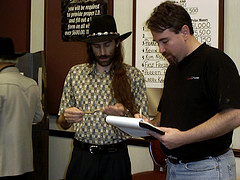 I moved next to Perry to try to engage him. It was like tapping into a fire hose. In the hours that passed, he orchestrated dozens of outlandish prop bets — but mostly he gushed about his latest business venture. He and a number of other pros were going to launch a new online poker site.
I moved next to Perry to try to engage him. It was like tapping into a fire hose. In the hours that passed, he orchestrated dozens of outlandish prop bets — but mostly he gushed about his latest business venture. He and a number of other pros were going to launch a new online poker site.
I tried not to be rude, but IMHO the time had passed for online poker entrants. Planet Poker, Paradise Poker, PartyPoker and PokerStars all had healthy head starts in the US online poker market. The upfront software development costs would be huge. It would be a battle, trying to unseat entrenched market leaders with years under their belts. The more Perry babbled on, the more worried I became for his misguided online poker vision. Read More »
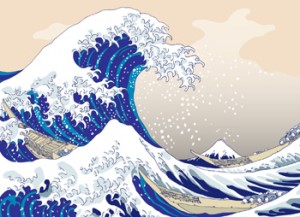 I was 11 when I read The Big Wave
I was 11 when I read The Big Wave by Pearl S. Buck. I still remember my confusion and horror at the end of the book. How could Jiya move back to the same fishing village where his family died in a tsunami? Not only did he return with his new wife but they built a house with doors that opened wide to the ocean.
by Pearl S. Buck. I still remember my confusion and horror at the end of the book. How could Jiya move back to the same fishing village where his family died in a tsunami? Not only did he return with his new wife but they built a house with doors that opened wide to the ocean.
Some people find it odd that I was risk-averse as a child – a time of life when vulnerability is incomprehensible. They think that because I gave up a good corporate gig, went back to graduate school when I was older than many of my professors, play poker and have mid-six figures riding in the market each day that I welcome risk now. I don’t. I just want my risk to be overt. I can’t control my enemy but — at this point in my life — I need to be able to look him in the eye.
There is no risk-free rate of return. Black-Scholes, diversification, VaR and Bayesian statistics won’t protect me in the market any more than a sea wall protected the Japanese or the levees worked in New Orleans.
To some extent, we have all built houses on the shore. Most people just don’t know it. Or like me, when I graduated college, they think they can control risk. Read More »
 In Austin, you can go just about anywhere in shorts or jeans and most people do. So I laughed when the local paper brought in a fashion reporter last year. His first column mentioned French cuffs. I suspected most readers thought he was referring to fancy bondage gear.
In Austin, you can go just about anywhere in shorts or jeans and most people do. So I laughed when the local paper brought in a fashion reporter last year. His first column mentioned French cuffs. I suspected most readers thought he was referring to fancy bondage gear.
It’s not that I don’t have dresses in my closet. Since the Carter administration I bought exactly two; a black cocktail dress from Goodwill and a long evening dress I scored on eBay. Unfortunately, both were a little long in the tooth for my newfound need.
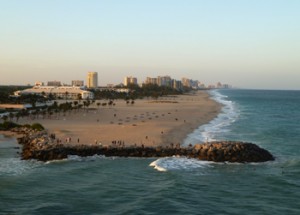 I was working from home one day at the end of January when the marketing boss called. I was a little freaked out because he never calls me. But at the last minute, one of my colleagues couldn’t make a speaking engagement she had scheduled. It wasn’t your run of the mill seminar. It was an investing cruise. He wanted to know if I’d fill in.
I was working from home one day at the end of January when the marketing boss called. I was a little freaked out because he never calls me. But at the last minute, one of my colleagues couldn’t make a speaking engagement she had scheduled. It wasn’t your run of the mill seminar. It was an investing cruise. He wanted to know if I’d fill in.
The ground in Austin was white with snow. I realize that an inch of snow is barely a down payment for the bill the rest of the country got stuck with this year. But for Austin, it was salt in the wound for a particularly cold winter. I immediately agreed to the cruise. Read More »
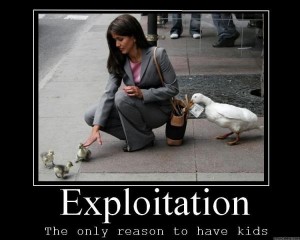 When I was about six, my father asked me if I knew what the word “exploitation” meant. I shook my head “no.”
When I was about six, my father asked me if I knew what the word “exploitation” meant. I shook my head “no.”
“Get me a beer and I’ll tell you,” he said. I brought him the beer and he said nothing. He just smiled.
I wish I could tell you that I learned my lesson on that very day. But I probably fetched the equivalent of a case of beers before it started to dawn on me.
I think of my father every time I’m on a social networking site. These sites can be useful. But they are also there to exploit you. They don’t want your money. They want something far more valuable. They want your time – maybe even more than my father wanted beer.
There’s a fine line between using these sites and being used. And it all starts innocently enough.
You Need One Thing from the Kitchen and End Up Bartending for Life
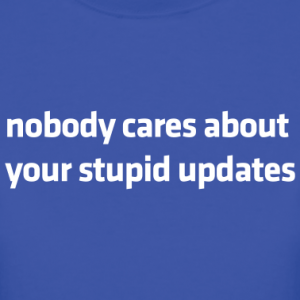 For me, it started when my company was looking to hire an editor. There were two financial editors I had worked with previously in Austin. One was now the lead singer for the band Spoon. I had trouble locating the other editor. I suspected she may have moved. But I found her profile on LinkedIn. I signed up so I could send her a message. I never heard back from her. But in the weeks that followed, I heard from everyone else. Read More »
For me, it started when my company was looking to hire an editor. There were two financial editors I had worked with previously in Austin. One was now the lead singer for the band Spoon. I had trouble locating the other editor. I suspected she may have moved. But I found her profile on LinkedIn. I signed up so I could send her a message. I never heard back from her. But in the weeks that followed, I heard from everyone else. Read More »
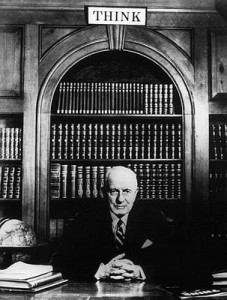 Technically, I shouldn’t have been there. I was the only first-level manager in a sea of higher-ups. My fourth-level manager should have attended the weekly meetings. But he was a single 40 year-old, going on 14. The last thing he wanted to do was burn Friday nights at work. I ended up with the short straw.
Technically, I shouldn’t have been there. I was the only first-level manager in a sea of higher-ups. My fourth-level manager should have attended the weekly meetings. But he was a single 40 year-old, going on 14. The last thing he wanted to do was burn Friday nights at work. I ended up with the short straw.
The meetings started at 5:00 pm and ran well past every happy hour in town. Initially I cursed my luck. Ultimately, it changed my management philosophy and how I looked for answers.
IBM, like many large companies, harbored a culture of hierarchical empty suits and country club WASPs. Maybe that’s why Herb immediately stood out at the Friday night meetings. He was Jewish, had a PhD and was a little unkempt. In an environment of oily political rhetoric, he was candid and blunt. Yet for all his irreverence, IBM entrusted him with its 1500+ semiconductor research and development team the world over.
In IBM-speak, Herb was a “wild duck.” Over the years I came to equate the term with people who didn’t fit IBM’s buttoned-down ideal but who were too smart to ignore. It probably wasn’t a coincidence that a lot of them were also minorities and women.
The thing that most impressed me about Herb was the company he kept. His managers and advisors were smart, motivated and had integrity. But most of all, they openly challenged his decisions – routinely and publicly. And that’s precisely why he chose them. Read More »
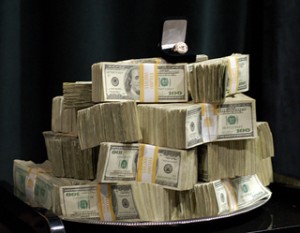 “OK. Well I just hope I can sell this to the Lithuanian,” the voice on the phone concluded.
“OK. Well I just hope I can sell this to the Lithuanian,” the voice on the phone concluded.
I had just finished negotiating my contract to cover the 2008 World Series of Poker. It hadn’t gone as well as I had hoped. I got more than they initially offered, but not quite as much as I got paid in 2007. And I was pissed.
I was probably more pissed at myself than I was at PokerNews. During the negotiation, it was obvious to me that both I — and my client — lacked leverage. And I was pissed because I knew this day was coming.
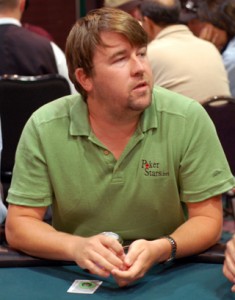 I flashed back to 2006 in the food court of the Gold Strike Casino in Tunica, Mississippi. “We’re so fucked,” I belted out to the Shrink.
I flashed back to 2006 in the food court of the Gold Strike Casino in Tunica, Mississippi. “We’re so fucked,” I belted out to the Shrink.
It was late and the food court was as lackluster as any. But it was one of the only places you could find wireless in the whole Tunica gambling metropolis. It was September 29th and the Shrink and I were posting the latest final table results from the Grand’s WSOP Circuit event.
I tend to surf as I write, which is how I discovered Bill Frist had just tacked the Unlawful Internet Gambling Enforcement Act (UIGEA) onto must-pass legislation one day before Congress was set to adjourn for the 2006 elections. Frist didn’t particularly give a shit about the UIGEA. But Frist had a presidential campaign to orchestrate and the UIGEA was Jim Leach’s pet project. Doing a favor for the representative of Iowa (host site of the first presidential caucus) was a no-brainer, even for a halfwit like Frist. Read More »

“The market can stay irrational longer than you can stay solvent.”
John Maynard Keynes
I thought a lot about Keynes’ cautionary words during the summer of 2007. But in the end, being early saved me. And strangely enough, the World Series of Poker gets most of the credit.
 In February 2007, HSBC wrote down over $10 billion in subprime mortgage-backed securities, kicking off a shit storm in the subprime mortgage world. That spring, the media was still treating it as an isolated problem. But you didn’t have to think very far outside of the box to imagine some kind of spillover to the broader economy.
In February 2007, HSBC wrote down over $10 billion in subprime mortgage-backed securities, kicking off a shit storm in the subprime mortgage world. That spring, the media was still treating it as an isolated problem. But you didn’t have to think very far outside of the box to imagine some kind of spillover to the broader economy.
I was heading out to Las Vegas to cover the World Series of Poker in early summer that year, as I had in prior years. Knowing the hellacious hours I would be working during those six weeks, I figured I wouldn’t have time to watch over my investments. My days would just be getting started as the markets were closing in New York. And if things started getting as dicey as I imagined, I didn’t want to leave my equity and commodity-laden portfolio unattended. Read More »
In July 2010, Paul Goydos shot a 59 in the first round of the John Deere Classic, becoming only the fourth golfer in PGA history to hit that mark. He birdied eight of the last nine holes. In this interview with NPR, Gaydos was asked if he was nervous as he lined up to make his final putt. “I’m always nervous. Nerves mean expectations. And my expectations are very high. I think the day that I’m not nervous is the day that I probably retire.”
Listening to the interview during my office commute, I broke out into a smile. I had recently been interviewed for an internal article. In one answer, I discussed how I constantly sweat every decision, investment, and trend. The question was ultimately pulled from the article. The reason given came with the 1984 Dry Idea deodorant tag line, “Never let them see you sweat.” Apparently, this is like the first rule of fight club in the investment newseltter world.
But I do sweat. And like Gaydos, the day that I stop sweating will be like a flashing neon sign, warning me to move on. Game over. Read More »













